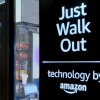Online shopping has entertained many a soul in recent years—and made retail giants like Amazon billions of dollars. But now, people are shopping less and less online, leading Amazon to make changes in an area most of us ignore: returns.
Amazon recently announced that it would start charging some customers $1 for returns made at the UPS Store. It also announced that it would start flagging some items as “frequently returned.”
These changes may or may not apply to you. If you’re a regular Amazon shopper, you know that you can make Amazon returns at several locations. You’ll only pay $1 if you choose to make your return via the UPS store if your delivery address is the same distance from or closer to an Amazon Fresh, Kohl’s, or Whole Foods location.
As for the “frequently returned” label? It’s currently only visible to some customers: Several news outlets reported that this record player has the label, but I can’t see it. (Photos indicate that it reads, “Frequently returned. Check the product details and customer reviews to learn more about this item.”) Amazon has not yet indicated if or when we can expect to see the label sitewide.
Both changes seem like a clear effort by Amazon to save itself some money on returns, which the company has to pay for. But there are some other benefits, too. Fewer returns can potentially allow the company to lower its carbon footprint. And Amazon is hoping that the “frequently returned” label—which so far has been added mostly to products sold by third-party sellers—will help consumers avoid lower-quality products and make smarter purchases.
It remains to be seen how sellers and customers will react to these changes. On the seller side, they appear to be net positive. Higher-quality products without the “frequently returned” label many experience an increase in sales, and sellers may benefit from a potential decrease in returns—especially if they’re selling products they can’t resell. (If a customer returns an Amazon product that the seller can’t resell, the seller has to pay Amazon a fee.)
But I’m a little skeptical of the customer side. After all, as someone who’s spent much of their life relying on public transportation, my immediate reaction is, “What if my UPS store is physically closer but takes way longer to get to?” Amazon has made many of our lives extremely convenient, and I don’t like the idea of paying extra for that convenience—even if it is just $1.
Sasha Graffagna is a trilingual content creator with 7+ years of experience creating written, visual, and audio content. She's passionate about productivity, health, and empowering individuals and businesses effectively convey their message to their desired audience.











































